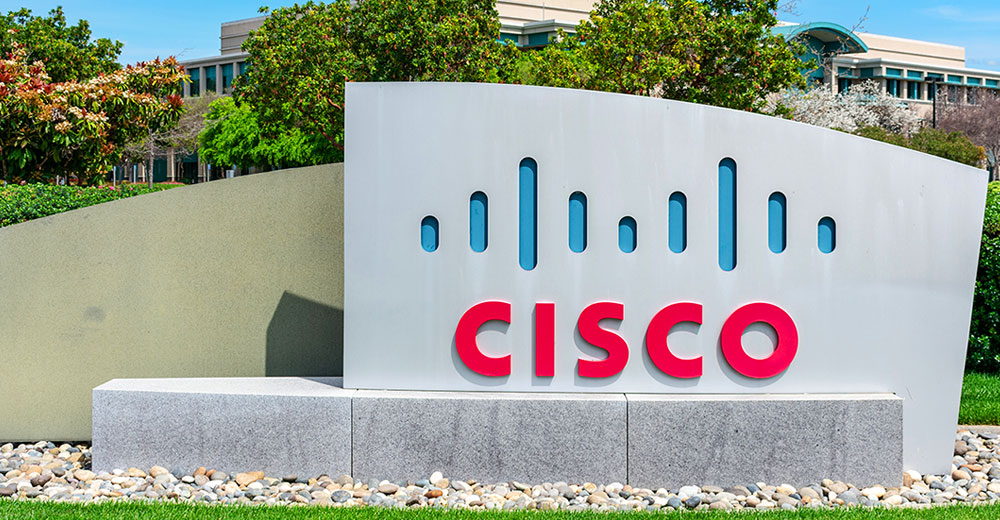Social media platform TikTok, amid ongoing negotiations with the Biden Administration about data security and surveillance, is now facing congressional efforts to shut down its operation.
On the heels of TikTok’s secretive launch of its retail sales integration in November, Sen. Marco Rubio, R-Fla., on Tuesday announced bipartisan legislation to ban the popular China-sponsored app from operating in the United States.
The new bill follows Rubio’s pushback to the White House in May for not addressing concerns over the app’s ties to its China-based parent company ByteDance, and the Chinese government’s penchant for surveillance through technology. Rubio had released a statement urging President Biden to make it clear that TikTok Shop would not be allowed to operate in the United States.
The legislation fuels pressure on ByteDance as U.S. fears grow that the app could be used to spy on Americans and censor content. If approved, the impact could have far-reaching implications on influencers, social media users, and companies that use it for marketing purposes.
Rubio’s bill would block all transactions from any social media company in or under the influence of China and Russia, according to a news release from Rubio’s office. The announcement added that Republican Mike Gallagher and Democrat Raja Krishnamoorthi sponsored a companion bill in the U.S. House of Representatives.
Cloud Insight Might Clear Up Data Flow
Congressional hearings on TikTok might reveal how much security and compliance data privacy regulations are in place with Oracle, which provides cloud storage services for the domestic operation of TikTok.
Platform officials disclosed in June that its American traffic goes through Oracle’s servers, and TikTok officials also said it retains its own data backups.
Oracle did not respond to inquiries about compliance with its data storage practices with TikTok. But Luke Lintz, CEO of HighKey Enterprises, a Canada-based digital marketing and social media management company, agreed that the company might have a significant impact if congressional hearings pursue clarity on details about handling TikTok’s U.S. data delivery and storage.
“TikTok poses a real threat when it collects and stores more data points about users than any other social media platform. There will likely be a full audit of Oracle’s data storage to see the exact agreements and policies in place between ByteDance and Oracle,” Lintz told the E-Commerce Times.
Why the Concern
The proposed banning law, titled “Averting the National Threat of Internet Surveillance, Oppressive Censorship and Influence, and Algorithmic Learning by the Chinese Communist Party Act (ANTI-SOCIAL CCP Act),” would protect Americans by blocking and prohibiting all transactions from any social media company in, or under the influence of, China, Russia, and several other foreign countries of concern.
Rubio said in the announcement, “The federal government has yet to take a single meaningful action to protect American users from the threat of TikTok. This isn’t about creative videos — this is about an app that is collecting data on tens of millions of American children and adults every day. We know it is used to manipulate feeds and influence elections. We know it answers to the People’s Republic of China. There is no more time to waste on meaningless negotiations with a CCP-puppet company. It is time to ban Beijing-controlled TikTok for good.”
Rep. Gallagher called TikTok a “digital fentanyl that’s addicting Americans, collecting troves of their data, and censoring their news.”
According to Gallagher, TikTok is also an increasingly powerful media company that ultimately reports to the CCP. He said China was America’s foremost adversary.
“Allowing the app to continue to operate in the U.S. would be like allowing the U.S.S.R. to buy up the New York Times, Washington Post, and major broadcast networks during the Cold War. No country with even a passing interest in its own security would allow this to happen, which is why it’s time to ban TikTok and any other CCP-controlled app before it’s too late,” said Gallagher in the announcement.
The Chinese Communist Party and other adversaries abroad seek any advantage against the United States through espionage and mass surveillance. It is imperative not to allow hostile powers to potentially control social media networks that could be easily weaponized against us, noted Rep. Krishnamoorthi.
“The bipartisan ANTI-SOCIAL CCP Act is a strong step in protecting our nation from the nefarious digital surveillance and influence operations of totalitarian regimes. Recent revelations surrounding the depth of TikTok’s ties to the CCP highlight the urgency of protecting Americans from these risks before it’s too late,” he said in the announcement.
Support for TikTok Ban Widens
Recently, Maryland, South Dakota, South Carolina, and Texas have banned using TikTok on government devices, citing potential national security threats. On Monday, Alabama and Utah also prohibited using the TikTok app on state government devices and computer networks due to national security concerns.
Laura Perez, global director of B2B communications for TikTok, told the E-Commerce Times in discussing the expansion of the TikTok Shops and security concerns that the company was in active conversations with the U.S. government to address some of their apprehensions. She added that TikTok was transparent about those issues with its brand and merchant partners.
As of this writing, neither Perez nor other TikTok officials responded to our request to comment on the potential banning law. However, an unnamed TikTok spokesperson reported elsewhere that the national security review of TikTok and a politically-motivated ban were troubling and would not advance the U.S.’s efforts to increase national security.
Despite the growing support for banning TikTok’s operation in the U.S., Charles King, principal analyst at Pund-IT, suggested that negative reactions from the platform’s massive user base might become an issue.
He agreed that TikTok’s owner ByteDance’s dependence on the Chinese government and how the company treats user information have been concerns for years. But growing fears are finally gaining traction among politicians after the GOP’s poorer-than-expected showing in the midterm elections.
“If TikTok users old enough to vote are angry enough, they might carry their displeasure into the 2024 elections,” King told the E-Commerce Times.
Potential Pushback Possible
Banning TikTok would undoubtedly impact the growing use of social media marketing. It would be hugely impactful and disruptive, especially for companies targeting younger consumers, who make up the vast majority of TikTok users and influencers, observed King.
“It is hard to predict what alternative platforms TikTok’s tens of millions of users would choose instead,” he added.
Lintz observed that Banning TikTok would have little impact on the trajectory of other outlets. The increased usage of social media year over year would remain unchanged.
“Currently, the average social media user uses 6.6 different platforms, which clearly indicates that users are rarely solely committed to one platform,” he told the E-Commerce Times.
Lintz anticipates a massive adverse reaction, however, mainly from content creators and companies that have spent hundreds of thousands of hours building their audiences.
“Some businesses and personal brands have paid us hundreds of thousands of dollars over the years to build their brands with TikTok-specific videography, daily posting, and growth strategies. That would all disappear overnight if they ban it, which would lead to extreme outrage,” he offered.
Concerns Extend Beyond User Reactions
Matthew Marsden, vice president at endpoint management company Tanium, noted that some might argue that TikTok is dangerous simply because of social media’s impact on the younger generation.
“Even more concerning is the very real possibility that the popular platform is supported by the Chinese Communist Party (CCP) and used to conduct influence operations and collect sensitive personal and biometric data,” Marsden told the E-Commerce Times.
TikTok’s privacy policy states that the app may collect biometric identifiers and biometric information as defined under U.S. laws, such as faceprints and voiceprints. Marsden noted that the app may also share the collected data with others.
“This is incredibly concerning as the CCP can easily compel China-based companies to share information to support party objectives,” he said. “Chinese intelligence tactics are focused on longer-term objectives and are fueled by the sustained collection of data.”
Why Worry?
TikTok’s immense user data collection now includes commerce and purchasing information combined with biometrics and activity tracking. Marsden warned that this all feeds detailed intelligence for operations.
“This data can be leveraged to deliver targeted, timely, and often personalized psychological operations against individuals or groups of citizens. This has been observed during election cycles and politically charged events in recent years,” he explained.
Perhaps an even more significant concern is that TikTok users can no longer trust that an app or website will keep their data safe. Craig Lurey, CTO and co-founder of cybersecurity software firm Keeper Security, says proactive measures are essential as cybersecurity threats become a pervasive aspect of our daily lives.
“There is also concern about who has access to this data, particularly when it is a nation-state,” Lurey told the E-Commerce Times.
Other Actions Needed?
Mike Parkin, senior technical engineer at Vulcan Cyber, suggested two separate issues may be involved. His company provides SaaS solutions for enterprise cyber risk remediation.
“TikTok opening an online marketplace is a natural evolution of the e-commerce space and the blending of marketplace platforms and social media influencers. Whether social commerce itself and TikTok joining that market is a good idea or not is a separate question,” Parkin told the E-Commerce Times.
Lintz does not think that banning TikTok is the correct solution. Its impact on U.S. content creators and businesses that make their livelihoods from TikTok may be too severe. “I believe the correct solution is setting guidelines for a U.S. majority stake ownership in TikTok,” he countered.






















































